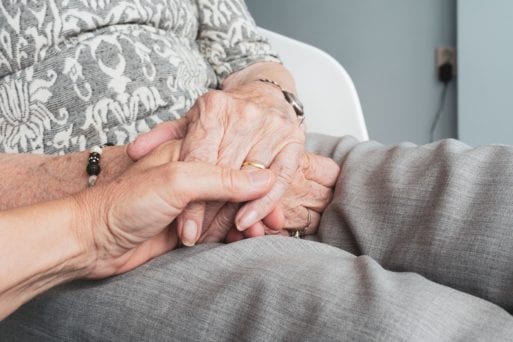
As of August 1, terminally ill adults who live in New Jersey can decide when it’s time to die. The Garden State’s New Jersey Aid in Dying for the Terminally Ill Act passed in April despite Gov. Phil Murphy’s reservations based on his Catholic faith. Upon signing the bill that allows for medical aid in dying (in the past referred to as physician-assisted suicide) the Governor said, “While my faith may lead me to a particular decision for myself, as a public official I cannot deny this alternative to those who may reach a different conclusion … Signing this legislation is the decision that best respects the freedom and humanity of all New Jersey residents.”
Even so, the bill came into question when, two months later, NJ Assemblymember Robert Auth (R) and three co-sponsors introduced another bill aiming to repeal the Aid in Dying for the Terminally Ill Act before it would actually go into effect. That effort did not succeed. Thus New Jersey has become the eighth state, along with Washington D.C., that has a death with dignity statute.
The “Medical Aid in Dying for the Terminally Ill Act” lets mentally sound Garden State residents with a verifiable six months or fewer left to live request a cocktail of drugs to end their lives. Susan Boyce, a potential beneficiary of the new law, advocated for its passage for over eight years. Ms. Boyce, 56, has a slow-moving and incurable disease. She told the New York Post, “This law provides incredible peace of mind to people in my situation … It does a lot to counteract the fear and uncertainty about what the end is going to be like, and are you going to be able to stand it.” In time, her disease is expected to leave her unable to breathe and render her immune system ineffectual.
 A recent tally indicated close to 3,500 people in the United States have been allowed to end their lives under death-with-dignity laws passed in California, Colorado, Hawaii, Oregon, Vermont and Washington, according to information compiled by NJ.com. A 2019 Oregon study, however, clarified that not every patient who requests a prescription for medicine that will end their lives necessarily follows through using it. In 2018, 249 Oregon residents received prescriptions under the Death with Dignity Act. As of January 22, 2019, 168 people had died in 2018 from ingesting the prescribed medications, including 11 who had received the prescriptions in previous years. Oregon was the first state to enact death with dignity legislation 25 years ago. Characteristics of patients who chose aid in dying were similar to those in previous years: most patients were aged 65 years or older (79.2 percent) and most had cancer (62.5 percent).
A recent tally indicated close to 3,500 people in the United States have been allowed to end their lives under death-with-dignity laws passed in California, Colorado, Hawaii, Oregon, Vermont and Washington, according to information compiled by NJ.com. A 2019 Oregon study, however, clarified that not every patient who requests a prescription for medicine that will end their lives necessarily follows through using it. In 2018, 249 Oregon residents received prescriptions under the Death with Dignity Act. As of January 22, 2019, 168 people had died in 2018 from ingesting the prescribed medications, including 11 who had received the prescriptions in previous years. Oregon was the first state to enact death with dignity legislation 25 years ago. Characteristics of patients who chose aid in dying were similar to those in previous years: most patients were aged 65 years or older (79.2 percent) and most had cancer (62.5 percent).
Overall, Oregon officials estimate one-third of the assisted-dying prescriptions in the state have not been used since its DWDA, the first in the nation. Paul Duberstein, a palliative care expert with Rutgers School of Public Health, said this statistic implies that just having a prescription will be psychologically helpful for New Jersey patients with months or weeks left to live. Experiences in the other jurisdictions with similar laws suggest the move has truly delivered peace of mind to those who use it.
Of the people who successfully used their prescriptions in Oregon, 93 percent died at home. According to Duberstein, most people would like to die at home, rather than inside a hospital or other care setting.”There’s actually reason to believe that the law itself has incentivized people to have very difficult conversations about their end-of-life care preferences,” Duberstein said. “That’s one thing that we need to have much more of in this country.”

 NJ Is the 8th State to Legalize Medical Aid in Dying
NJ Is the 8th State to Legalize Medical Aid in Dying


 Final Messages of the Dying
Final Messages of the Dying
 Will I Die in Pain?
Will I Die in Pain?















